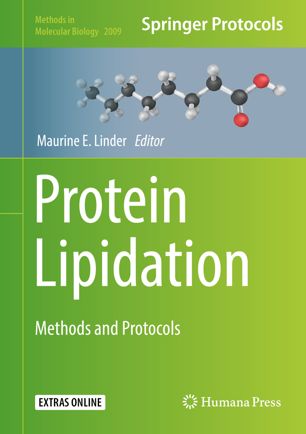

Most ebook files are in PDF format, so you can easily read them using various software such as Foxit Reader or directly on the Google Chrome browser.
Some ebook files are released by publishers in other formats such as .awz, .mobi, .epub, .fb2, etc. You may need to install specific software to read these formats on mobile/PC, such as Calibre.
Please read the tutorial at this link: https://ebookbell.com/faq
We offer FREE conversion to the popular formats you request; however, this may take some time. Therefore, right after payment, please email us, and we will try to provide the service as quickly as possible.
For some exceptional file formats or broken links (if any), please refrain from opening any disputes. Instead, email us first, and we will try to assist within a maximum of 6 hours.
EbookBell Team

4.4
62 reviewsThis volume explores techniques used to detect lipids attached to proteins, to analyze the function of lipid modifications, and to characterize the enzymes that add and remove lipids from proteins. The book is organized into seven parts: Part One describes chemically-based strategies to identify substrates for protein lipidation that can be applied to individual proteins or globally using proteomics. Part Two focuses on the enzymes that remove fatty acids from proteins and provides methods to monitor protein biogenesis and palmitate turnover. Part Three addresses biochemical and cellular characterization of DHHC S-acyltransferases, a family of enzymes with 23 members encoded by the human genome. Part Four presents the SwissPalm 2 database and tips on how to use it effectively. Part Five focuses on fatty acylation that occurs in the lumen of the secretory pathway. Parts Six and Seven conclude the book with methods to produce and assay lipid-modified and integral membrane proteins. Written in the highly successful Methods in Molecular Biology series format, chapters include introductions to their respective topics, lists of the necessary materials and reagents, step-by-step, readily reproducible laboratory protocols, and tips on troubleshooting and avoiding known pitfalls.
Cutting-edge and authoritative, Protein Lipidation: Methods and Protocols is a valuable resource for experts in the field and for investigators who encounter protein lipidation through their research on a particular cellular process or favorite protein.